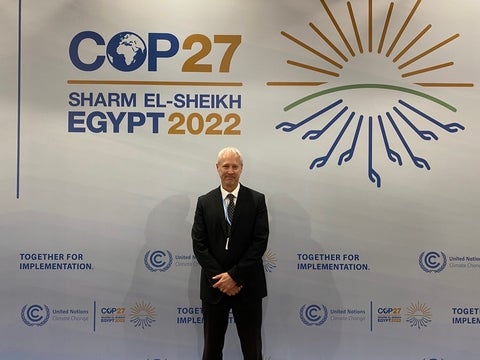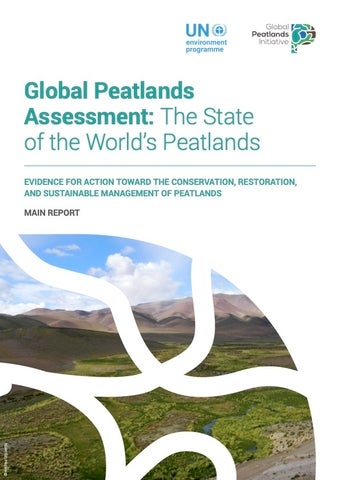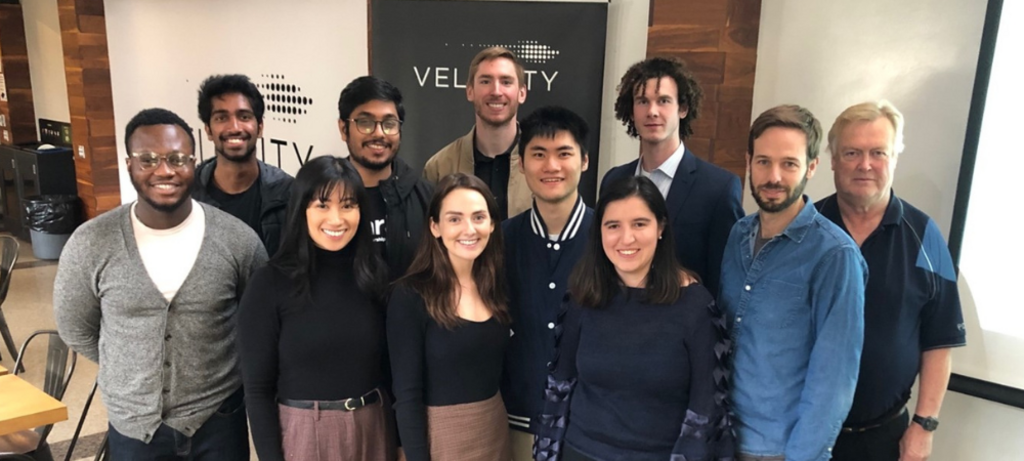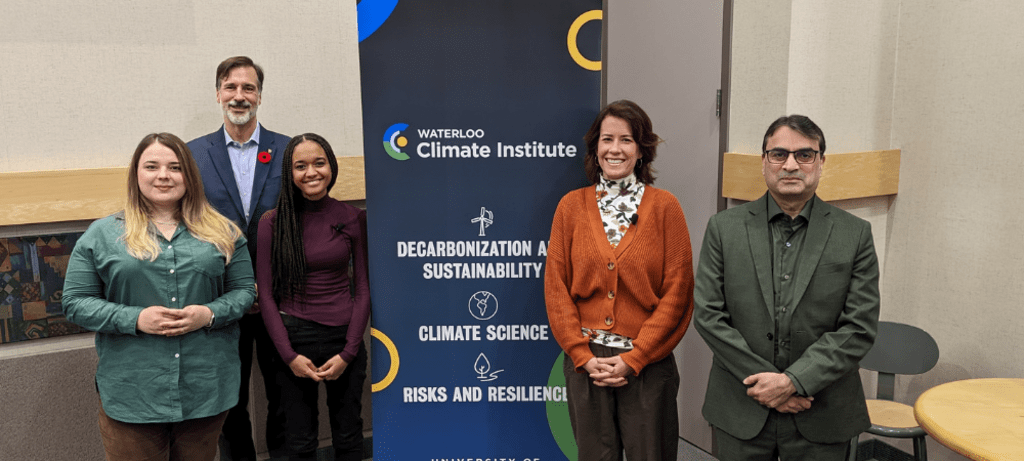Estimated reading time: 2 minutes
Each year the international climate change negotiations at the Conference of the Parties (COP) offer a critical opportunity to build on past progress and renew our commitment to accelerating the transition to a just, inclusive, low-carbon future. This year, the world descended on Sharm El Sheikh, Egypt, for COP27. Although opinions may vary on how successful COP27 was, and whether it was a “good” COP or “bad” COP, the fact remains that important conversations and work did take place and the effects of those actions will be impactful in the years to come.
We look back on three significant contributions by Waterloo Climate Institute members.
1. Accelerating climate resilient tourism
Dr. Daniel Scott unveiled the ‘Foundation Framework’ for the new international Tourism Panel on Climate Change (TPCC) on November 10. The TPCC brings together more than 60 leading experts from over 30 countries and from across academia, business, and civil society, including Scott and fellow Waterloo Climate Institute member Dr. Michelle Rutty. They are dedicated to a new era of climate resilient tourism, that is on track to achieve zero emissions by 2050 and is successfully adapting to accelerating the impacts of climate change through actions that broadly advance the Sustainable Development Goals.
2. Advancing insights in climate law and governance
On November 11, Dr. Marie-Claire Cordonier Segger and Dr. Neil Craik presented on expert panels during Climate Law and Governance Day 2022, including democratizing climate law and governance capacity, implementing the Paris Agreement through courage, contributions and compliance, and finally governing resilience and climate repair. With 1,400 registrants worldwide, these sessions at the event strengthened the climate law and governance community to support the achievement of the world’s sustainable development goals, contributed to sharing challenges and best practices, catalyzed knowledge and facilitated partnerships.
3. Launching evidence for action on peatland conservation, restoration, and management
The Global Peatlands Assessment – The State of the World’s Peatlands was launched on November 17 to inform and inspire action in policy, research and practice to protect, restore and sustainably manage peatlands now and long into the future. Developed by the United Nations Environment Programme’s Global Peatlands Initiative and supported by a group of 226 peatland experts from all regions of the globe, including Dr. Maria Strack who was a coordinating lead author of the report’s regional assessment for North America, it is the most comprehensive assessment of peatlands to date.

Dr. Daniel Scott at COP27.

Contact us for media inquiries to learn more about this or other climate change related stories.

